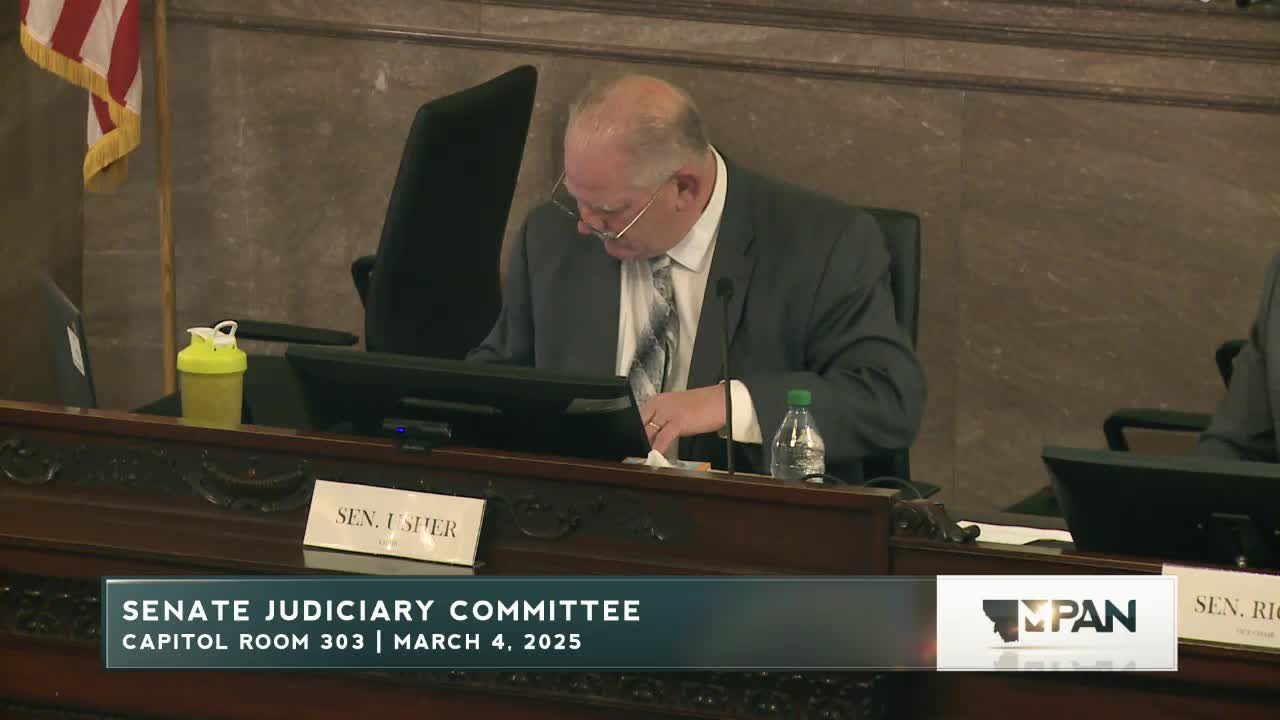Article not found
This article is no longer available. But don't worry—we've gathered other articles that discuss the same topic.
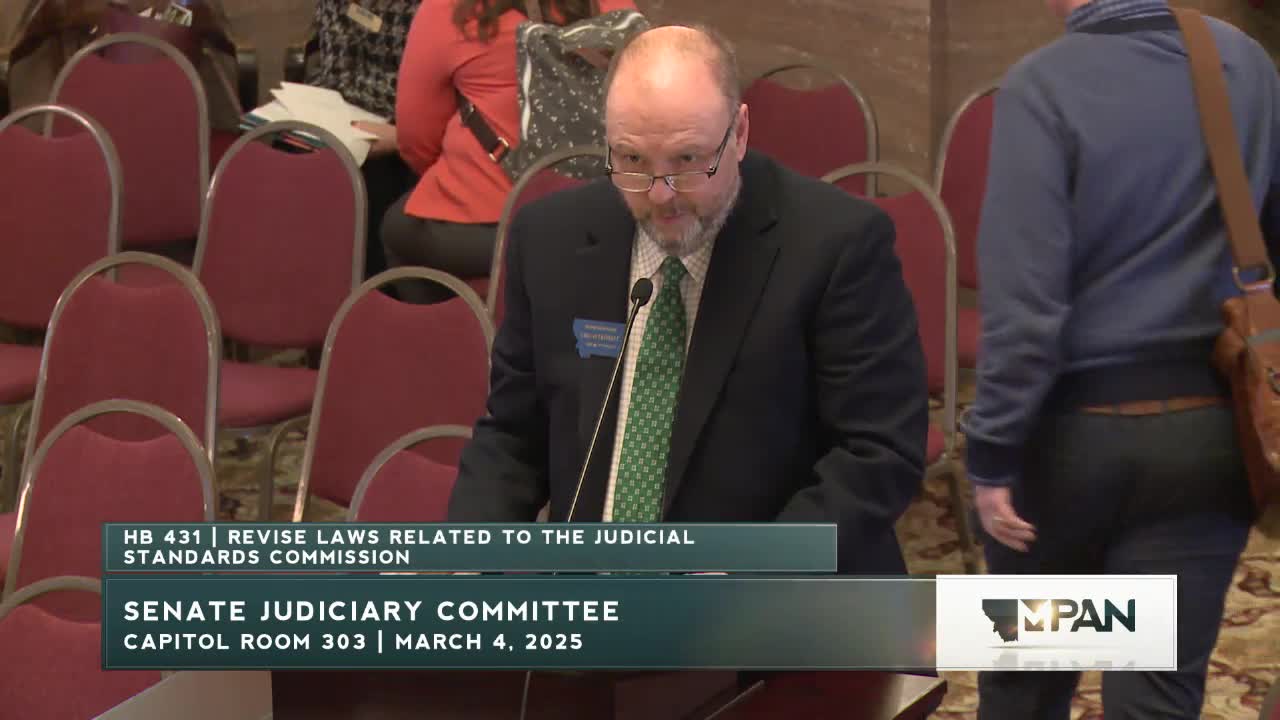
Committee clears bill allowing legislature to fill soon‑to‑be vacant Judicial Standards Commission seat
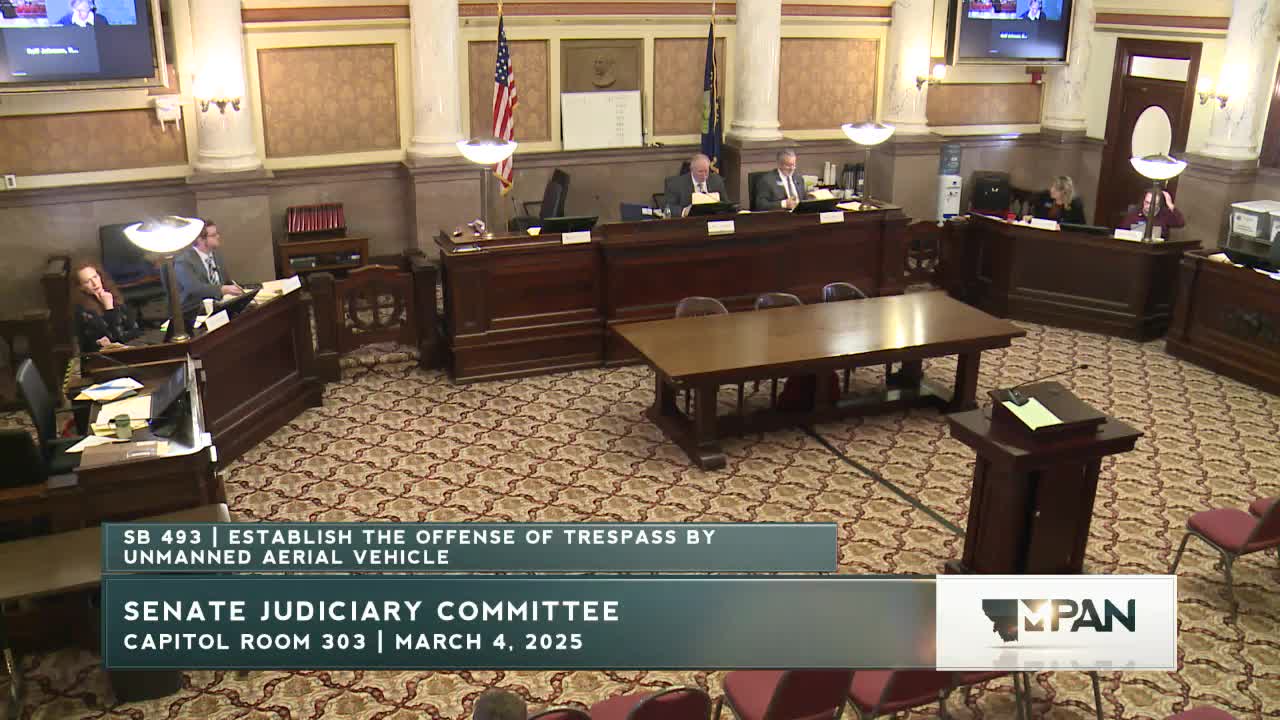
Deeply divided committee advances bill targeting disposal of chemical‑abortion waste; opponents call it a barrier to care
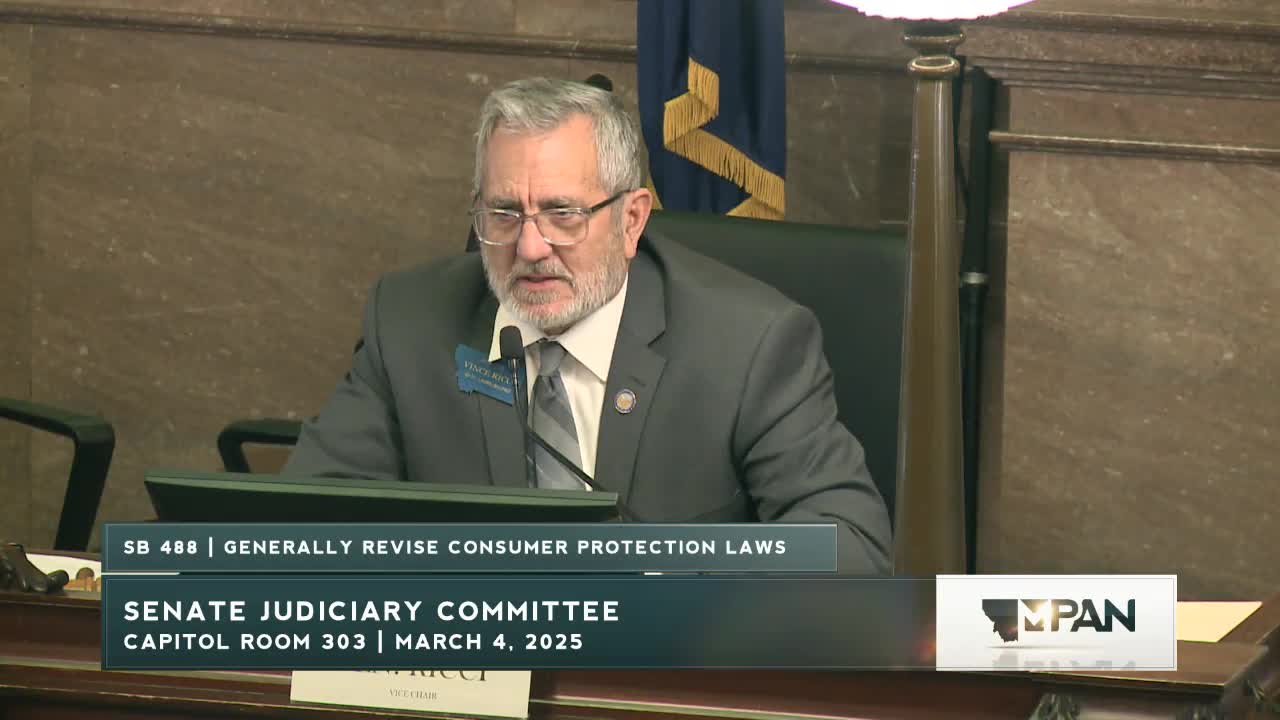
Committee advances trespass bill for drones with exceptions for utilities and licensed commercial operations
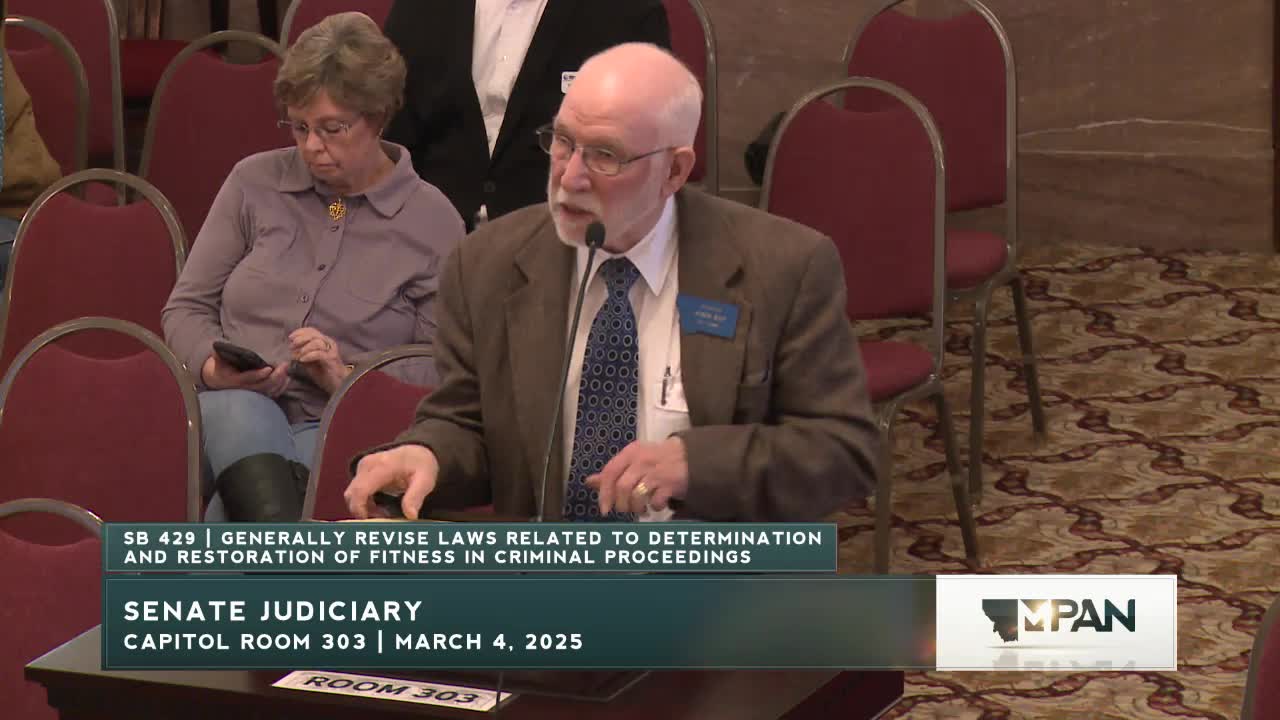
Committee clears technical fixes to Consumer Protection Act and definition clarifications
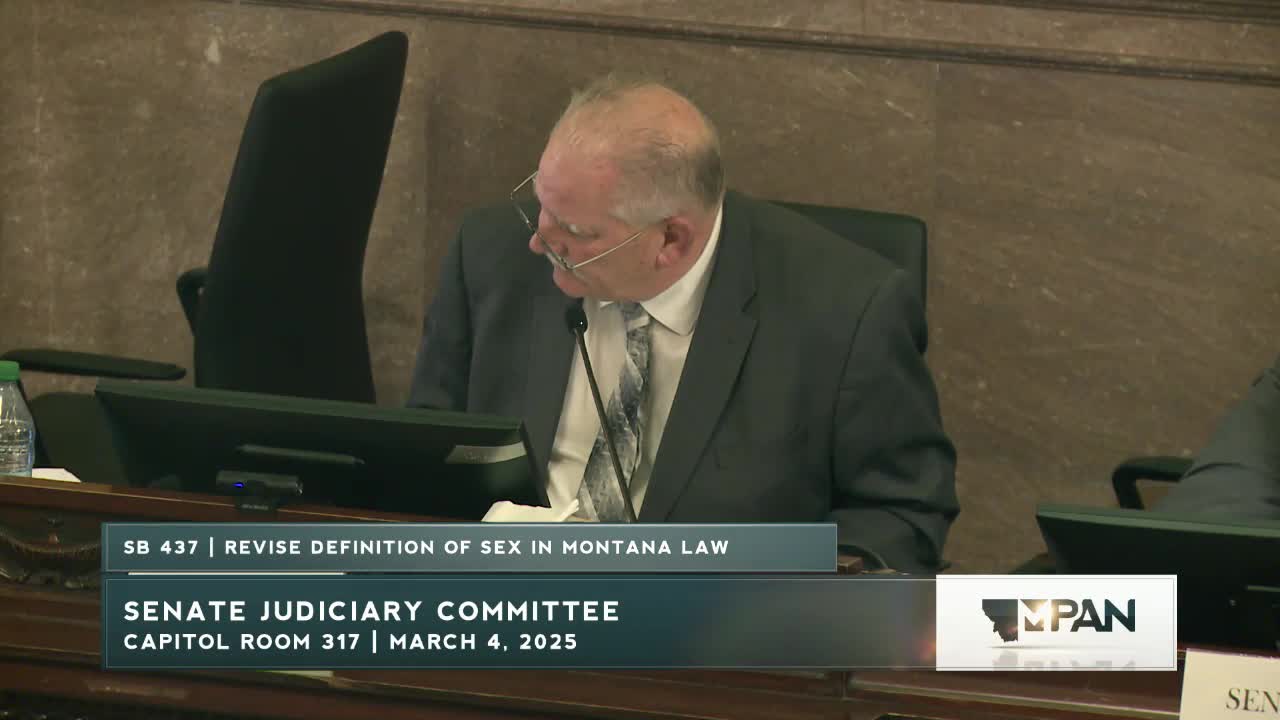
Panel backs bill to create state reimbursement for sexual‑assault forensic exams using marijuana tax revenue
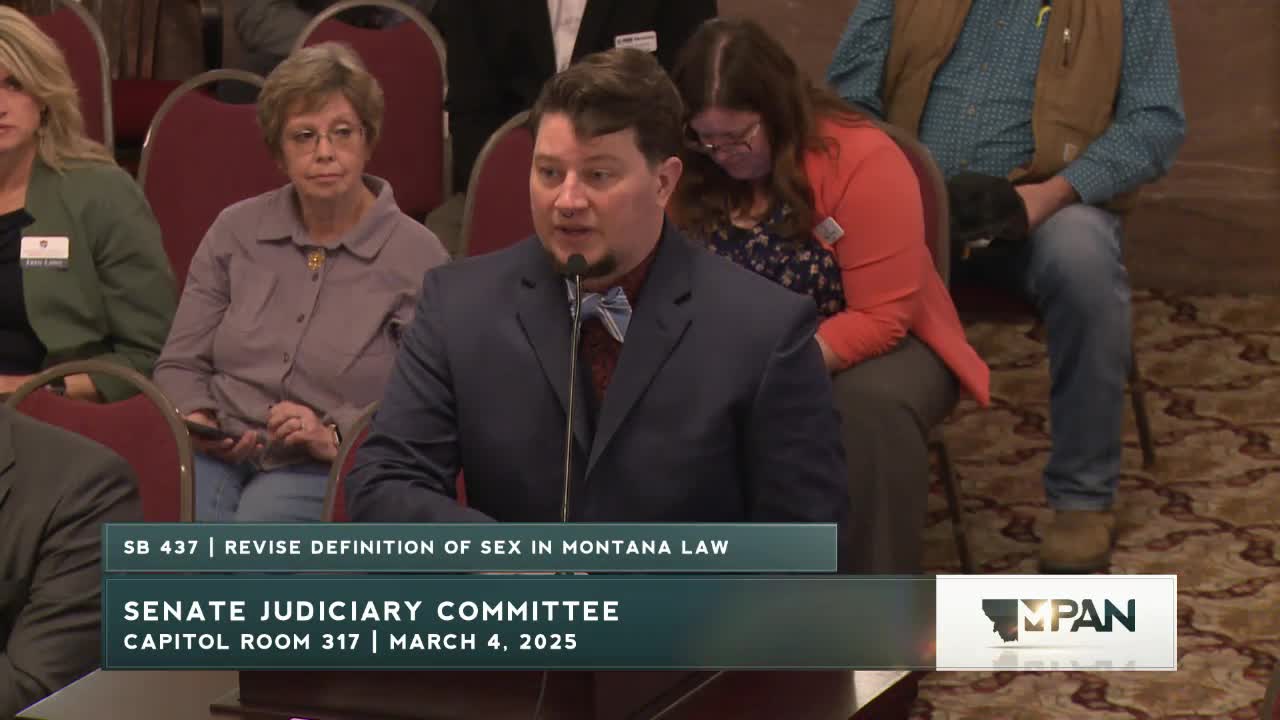
Committee votes to advance change that would require known lawful occupants be given notice when search warrants are served
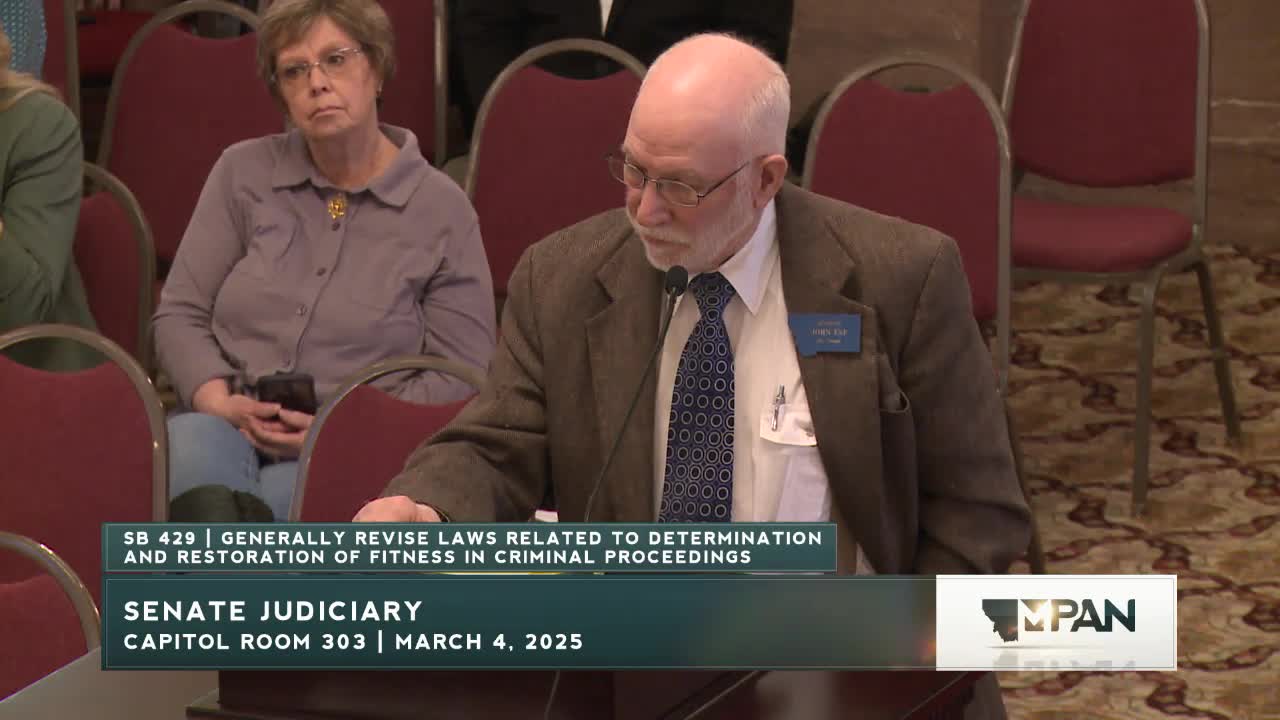
Senate hears progress reports on two bills aiming to ease access to Montana State Hospital beds; sponsors seek more time to finalize amendments
